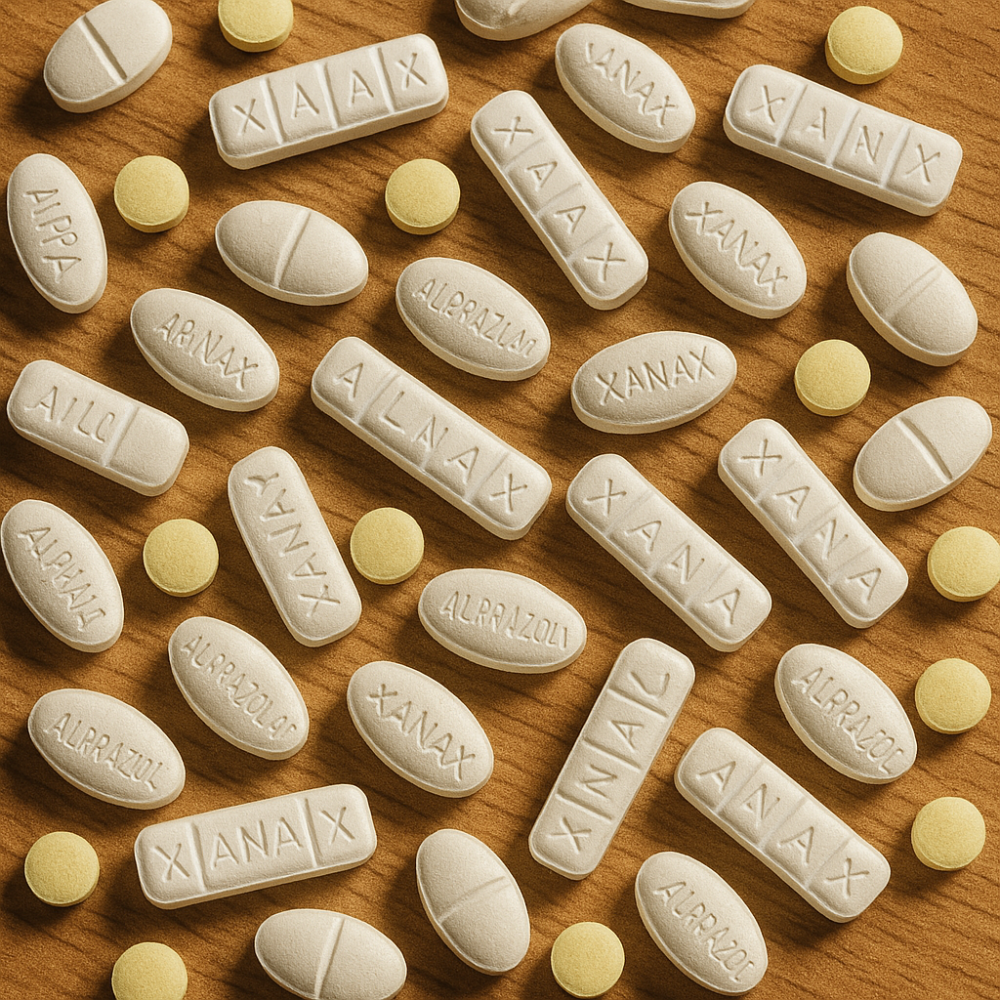The Dangers of Combining Lexapro & Trazadone
Lexapro, also known by its generic name escitalopram, is a selective serotonin reuptake inhibitor (SSRI) primarily used to manage depression and anxiety disorders. Trazodone, on the other hand, is an antidepressant and sedative primarily used to treat major depressive disorder and insomnia. While both drugs are effective on their own, using them concurrently can lead to serious complications and quickly venture into perilous territory.
Increased Risk of Serotonin Syndrome from Lexapro and Trazodone
Lexapro increases serotonin, a neurotransmitter that regulates mood, appetite, and sleep, in the brain. Trazodone also increases serotonin but works slightly differently; it inhibits its reuptake and alters the response of certain serotonin receptors.
Concurrent use of both medications can lead to an overload of serotonin, potentially resulting in serotonin syndrome. This condition is characterized by symptoms such as agitation, hallucinations, rapid heartbeat, fever, muscle stiffness, and seizures. Although serotonin syndrome is rare, it’s a potentially life-threatening condition that requires immediate medical attention.
Potential for Augmented Sedation
Trazodone is well-known for its sedative effects, which can help individuals with insomnia or sleep disturbances. Lexapro, while not a sedative, can cause drowsiness in some patients. When these two medications are taken together, the combined sedative effects can lead to over-sedation, resulting in extreme drowsiness, impaired cognitive functioning, and the potential for accidents or injuries due to decreased alertness.
Increased Risk of Inducing Mania
Mixing Lexapro and Trazodone can heighten the risk of induced mania, a condition characterized by elevated mood, hyperactivity, and grandiose thinking. This potential is especially pronounced in individuals with underlying bipolar disorder, even if it’s undiagnosed. The risk of inducing mania can be amplified due to the increased serotonergic activity in the brain.
Risk of QT Prolongation
Both Lexapro and Trazodone have been associated with a risk of QT prolongation, a heart rhythm condition that can cause irregular heartbeats, fainting, or even sudden death in rare cases. When these drugs are combined, the risk of QT prolongation increases. This makes it particularly dangerous for people with existing heart conditions, electrolyte imbalances, or those who take other medications that can prolong the QT interval.
Weight Fluctuations with Lexapro and Trazodone
Weight changes are common side effects of many antidepressants, including Lexapro and Trazodone. While Lexapro is more commonly associated with weight gain, Trazodone can lead to both weight gain and weight loss. When taken together, these effects can be unpredictable and might significantly impact an individual’s physical health and self-esteem.
Liver Function Concerns
Trazodone has been associated with liver toxicity in rare cases, particularly at high doses. Concurrent use of Lexapro, which is metabolized in the liver, can potentially exacerbate this risk. This could be particularly hazardous for those with existing liver disease or those using other medications known to affect liver function.
Overlapping Side Effects
Side effects of both Lexapro and Trazodone can be exacerbated when the drugs are used concurrently. Common side effects like dizziness, dry mouth, constipation, and blurred vision can worsen. Similarly, both medications can cause sexual dysfunction, including decreased libido, erectile dysfunction, and difficulty reaching orgasm. This could potentially affect an individual’s quality of life significantly when both medications are used together.
Even when taken as prescribed, Lexapro and Trazodone can present complications and health problems. The risk amplifies when these drugs are used together, leading to a potentially higher risk of developing serious adverse medical conditions. If you or a loved one are struggling with substance misuse or have concerns about your medication regimen, it’s important to seek professional help.
Get Help at Gallus Detox
Gallus Medical Detox Centers offer comprehensive and effective detoxification and stabilization services with a personalized approach. Our safe and supportive environment is designed to provide you with the care you need while addressing all aspects of your recovery.
We work with you to ensure care that fits your unique needs, helping you start your journey toward healing, health, and long-term stability. You don’t have to struggle with substance use alone. Regain control over your life by contacting Gallus Medical Detox Centers at to learn more and begin your healing journey.
FAQ Section:
What is serotonin syndrome?
Serotonin syndrome is a potentially life-threatening condition that can occur with the overuse of serotonergic drugs or the combination of two drugs that both increase serotonin levels. Symptoms can range from agitation and hallucinations to rapid heart rate, fever, muscle stiffness, and seizures. If you experience these symptoms, seek medical help immediately.
Can I take Lexapro and Trazodone together for insomnia?
While both Lexapro and Trazodone can have sedative effects, taking them together can lead to over-sedation, which can be dangerous. It is important to consult with your healthcare provider before combining these medications.
What should I do if I experience side effects from taking Lexapro and Trazodone?
If you experience side effects from taking Lexapro and Trazodone, particularly if they are severe or worrying, it is crucial to contact your healthcare provider immediately. In some cases, you might need immediate medical attention.
How can I mitigate the risk of complications when taking Lexapro and Trazodone?
The safest way to mitigate risks associated with these medications is to only take them as prescribed by your healthcare provider. Do not attempt to combine these drugs without medical guidance. If you have concerns about your medication regimen, discuss them with your healthcare provider.
References:
- Lexapro and trazodone Interactions Checker. (n.d.). Drugs.com. https://www.drugs.com/drug-interactions/lexapro-with-trazodone-1013-565-2228-0.html
- İzci, F., Lger, E., & Yolcu, S. (2020). Manic episode as a result of adding trazodone to a patient under escitalopram treatment: a case report. Anadolu Psikiyatri Dergisi, 0, 1. https://doi.org/10.5455/apd.114069
- Al-Akchar, M. (2022, December 26). Long QT syndrome. StatPearls – NCBI Bookshelf. https://www.ncbi.nlm.nih.gov/books/NBK441860/
- National Institute of Diabetes and Digestive and Kidney Diseases. (2020, February 26). Trazodone. LiverTox – NCBI Bookshelf. https://www.ncbi.nlm.nih.gov/books/NBK548557/


 Casey Wilson
Casey Wilson 
